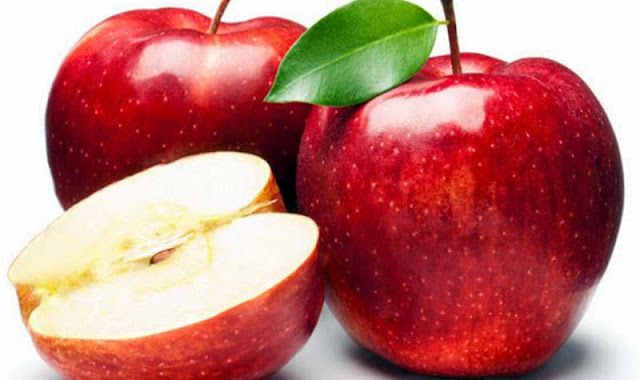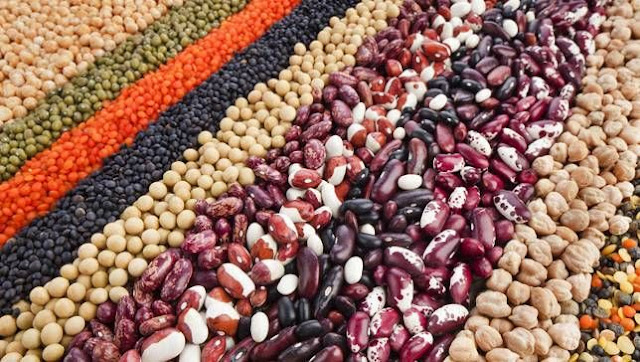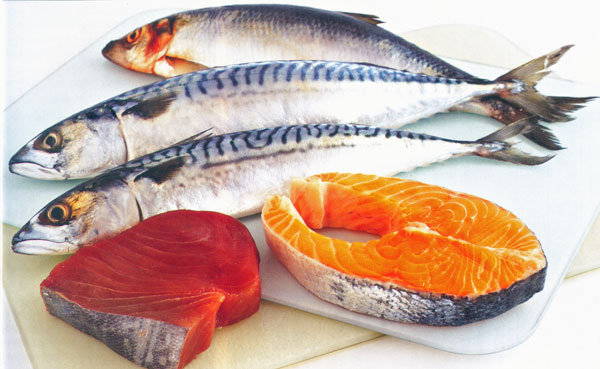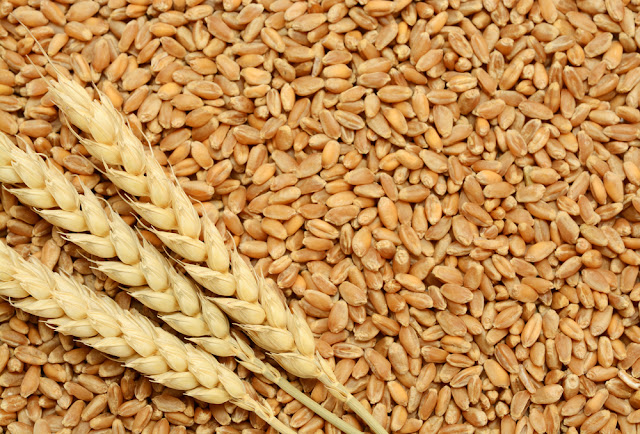10 Foods you should eat every day
Imagine a choice of foods that were tasty, nutritious and good for your health - i.e. they helped you maintain healthy body weight, improved your overall mood, and reduced your risk of developing diseases.
 |
Apples
|
Apples are an excellent source of antioxidants, which combat free radicals. Free radicals are damaging substances generated in the body that cause undesirable changes and are involved in the aging process and some diseases.
Some animal studies have found that an antioxidant found in apples (polyphenols) might extend lifespans.
Researchers at The Florida State University said that apples are a "miracle fruit".
In their study, the investigators found that older women who starting a regime of eating apples daily experienced a 23 percent drop in levels of bad cholesterol (LDL) and a 4% increase in good cholesterol (HDL) after just six months.
 |
Citrus
|
Available year-round, citrus fruits dish up cancer-fighting flavonoids that lower your odds of lung, stomach, colon, and breast cancers. Make the most of your fruit with these.
 |
Grapefruit
|
When volunteers ate half a grapefruit before every meal in a University of Arizona study, they shaved an inch off their waists, thanks to naringenin, which experts say may help burn fat.
 |
Eggs
|
A source of high-quality protein, eggs might give your meal more staying power too. A recent study found that when people ate a scrambled-egg-and-toast breakfast, they felt more satisfied—and ate less at lunch—than when they ate a bagel (that supplied the same number of calories) another day. Even if you’re watching your cholesterol, a daily egg can likely fit into your eating plans. Egg yolks contain lutein and zeaxanthin—two antioxidants that help keep eyes healthy. In fact, mounting research links lutein and zeaxanthin with reduced risk for age-related mauler degeneration, the leading cause of blindness in people over 50. And lutein also may help to shield your skin from UV damage.
 |
Beans
|
Beans are a good plant-based source of iron (up to 13 mg per 3/4 cup), a mineral that transports oxygen from your lungs to the cells in your body. Because your body can’t absorb the form of iron in plant-based foods as well as it can the form found in beef and poultry, pair beans with a vitamin C-rich food, such as sweet potatoes or lemon juice, to boost your iron absorption. Beans also boast fiber: 1/2 cup of cooked navy beans packs a whopping 7 grams of fiber, while the same amount of lentils and kidney beans provide 8 and 6 grams, respectively. Much of this fiber is the soluble kind that benefits blood cholesterol levels.
 |
Nuts
|
Nuts are rich sources of heart-healthy unsaturated fats. Studies of Seventh-Day Adventists (a religious denomination that emphasizes healthy living and a vegetarian diet) show that those who eat nuts add, on average, an extra two and a half years to their lives. Walnuts may be the spotlight-stealers, though, with their high level of alpha-linolenic acid (ALA), an omega-3 fatty acid that’s been linked to heart health and improved mood. Walnuts’ high mono- and polyunsaturated-fat content also helps reduce total and “bad” LDL cholesterol levels while maintaining healthy levels of “good” HDL cholesterol.
 |
Sweet Potatoes
|
Sweet potatoes are so brilliantly orange thanks to their alpha and beta carotene. The body converts these compounds into the active form of vitamin A, which helps keep your eyes, bones and immune system healthy. These photochemical also operate as antioxidants, sweeping up disease-promoting free radicals. One medium sweet potato—or about 1/2 cup—provides nearly four times the recommended daily value of vitamin A, plus some vitamin C and B6, potassium, manganese, and lutein and zeaxanthin, prompting the Center for Science in the Public Interest to call it one of the most nutritious vegetables in the land.
 |
Oily fish
|
Examples of oily fish include salmon, trout, mackerel, herring, sardines, and anchovies.
These types of fish have oil in their tissues and around the gut. Their lean fillets contain up to 30% oil, specifically, omega-3 fatty acids. These oils are known to provide benefits for the heart, as well as the nervous system.
Oily fish are also known to provide benefits for patients with inflammatory conditions, such as arthritis.
Oily fish also contain vitamins A and D.
Scientists at UCLA's Jonson Comprehensive Cancer Center found that prostate cancer progression was significantly slowed when patients went on a low-fat diet with fish oil supplements.
 |
Wheat
|
Wheat is the part of wheat that germinates to grow into a plant - the embryo of the seed. Germ, along with bran, is commonly a by-product of the milling; when cereals are refined, the germ and bran are often milled out.
Wheat is high in several vital nutrients, such as vitamin E, folic acid (folate), thiamin, zinc, magnesium, phosphorus, as well as fatty alcohols and essential fatty acids.
Wheat germ is also a good source of fiber.
 |
Yogurt
|
Yogurt is a great source of bone-building calcium, but its real strength lies in live beneficial bacteria, know as probiotics, that keep down the growth of harmful bacteria in your gut. Eating more yogurt could help with inflammatory bowel disease, ulcers, urinary tract infections and vaginal yeast infections.
How much? ¾ of a cup (175 ml) of low-fat or fat-free yogurt with live cultures is one serving of milk/dairy products.
"I believe that the greatest gift you can give your family and the world is a healthy you"
(Joyce Meyer)











EmoticonEmoticon